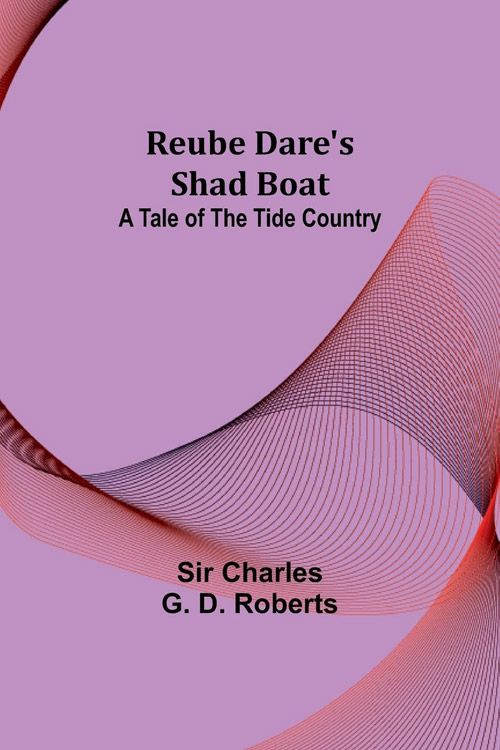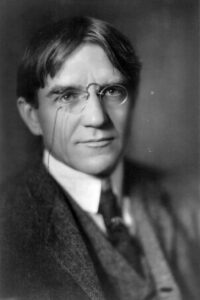
Reube Dare’s Shad Boat A Tale of the Tide Country
The shortcut that Reube took across the fields and marshes was calculated to diminish by a good half mile the distance separating him from his beloved boat. But it was a path beset with obstacles. Will Carter saw all these—the long strip of bog and alders at the foot of the upland; then the gluey stretch of “broad-leaf” marsh, passable enough at a later season, but now a mire with the spring rains; and beyond, furrowing the firm levels of young timothy and clover, the windings of a creek which he knew was, in most places, too wide to jump, and too deep to ford. With what breath he could spare—for his excited comrade was setting a stiff pace—he spasmodically exclaimed, “We’d save time, Reube, by keeping to the road.
We’ll be tangled up and stuck here the first thing we know, and the Dido will be off on her hook to seek the ruins of Carthage.” But Reuben made no answer. He saw no obstacles. All he could see was the far-off red stream, with the Dido, only a little way inside the line of the dikes, veering gently and aimlessly from one green bank to the other but steadily creeping seaward with the current. Well, he knew how soon, with the falling tide, this current would quicken its pace. Once, he let Dido get outside the creek, and he knew not what might happen to her.
She would certainly be off down the bay at a speed it appalled him to think of. And now, running in grim silence, Reube and Will drew near the foot of the uplands. Heavily and with no waste of energy, they flung themselves over a peculiarly massive rail fence and entered a spacious pasture. The field was dotted with mossy hillocks and a few low spruce bushes, between which the grass grew short and thick. Two or three wide-armed maple trees, standing far apart, relieved the vacancy of the sloping expanse, which ended in a broad fringe of alder swamp, spreading its labyrinth of black roots and bog holes a hundred yards out upon the marsh.
As they ran, threading their way among the bushes and springing from hillock to hillock, they heard an ominous grunting bellow on their right, and turning sharply, they saw a sizeable dark-red bull stepping out from under the shade of a maple tree. The animal bellowed again, deep in his throat, and running his horns into the nearest mound, tossed a little shower of turf and moss into the air. This was an honest challenge, but our runners were in no mood to accept it.
Read or download Book
Sir Roberts Charles G. D.
Sir Charles George Douglas Roberts (January 10, 1860 – November 26, 1943) was a Canadian poet and prose writer.
Biography.
He was one of the first Canadian authors to be internationally known. He published various works on Canadian exploration and natural history, verse, travel books, and fiction.” He continued to be a well-known “man of letters” until his death. Besides his own body of work, Roberts has also been called the “Father of Canadian Poetry” because he served as an inspiration and a source of assistance for other Canadian poets of his time. Roberts, his cousin Bliss Carman, Archibald Lampman, and Duncan Campbell Scott are known as the Confederation Poets. He also inspired a whole nationalist school of late 19th-century poets.
Roberts was born in Douglas, New Brunswick, in 1860, the eldest child of Emma Wetmore Bliss and Rev. George Goodridge Roberts (an Anglican priest). Rev. Roberts was rector of Fredericton and canon of Christ Church Cathedral, New Brunswick. Charles’s brother, Theodore Goodridge Roberts, and sister, Elizabeth Roberts MacDonald, also became authors. Between the ages of 8 months and 14 years, Roberts was raised in the parish of Westcock, New Brunswick, near Sackville, by the Tantramar Marshes. He was homeschooled, primarily by his father, who was educated in Greek, Latin, and French.
He published his first writing, three articles in The Colonial Farmer, at 12. After the family moved to Fredericton in 1873, Roberts attended Fredericton Collegiate School from 1874 to 1876 and then the University of New Brunswick (UNB), earning his B.A. in 1879 and M.A. in 1881. At the Collegiate School, he came under the influence of headmaster George Robert Parkin, who gave him a love of classical literature and introduced him to the poetry of Dante Gabriel Rossetti and Algernon Charles Swinburne.






